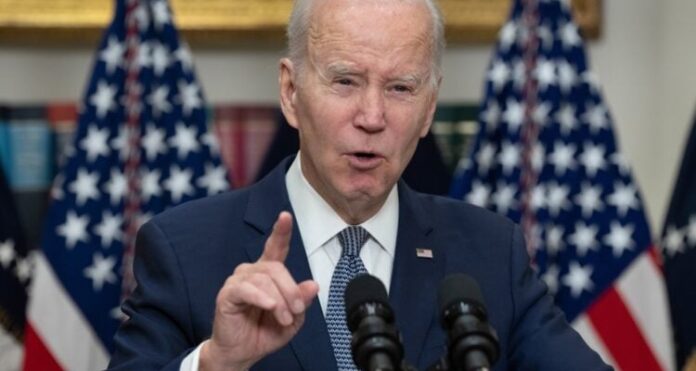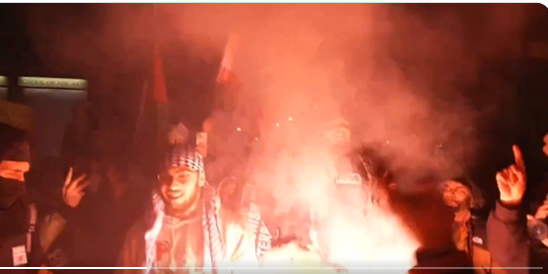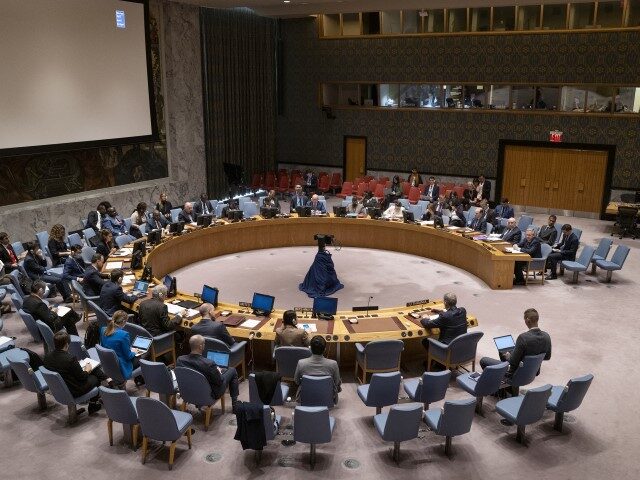For the Sake of NPR’s Integrity, Katherine Maher Should Step Down
In the arena of public trust, the credibility of news organizations hinges profoundly on the perceived impartiality and integrity of their leadership. A recent revelation concerning National Public Radio (NPR) brings this delicate balance into stark relief, casting shadows of doubt over the impartiality that is sacrosanct in journalism.
Katherine Maher, who has recently taken the helm as CEO of NPR, was discovered to have donated $500 to Fair Fight, a political action committee led by Stacey Abrams, known for its staunch stance on election integrity issues, particularly following the contentious 2018 Georgia gubernatorial race. It is essential to scrutinize the implications of such a donation made by someone who now leads a major, taxpayer-funded national news organization.
The essence of this concern lies not in the mere act of donating — as private citizens undoubtedly have the right to support political causes of their choosing — but in the particular alignment of this donation with a group that has actively challenged the legitimacy of an election outcome. Stacey Abrams, after her defeat in the 2018 race, vehemently contested the results, levied serious accusations against the integrity of voting systems, and engaged in legal battles that were ultimately dismissed, with her organization bearing the cost of legal fees for what was determined to be a baseless challenge.
Now consider a hypothetical yet analogous scenario where a high-ranking executive at ABC News had made donations to a fund supporting Donald Trump post-January 6, amidst swirling controversies and debunked claims of a stolen election. The uproar from the journalism community and the public would be swift and unforgiving, likely culminating in a forced resignation due to the untenable position of appearing to endorse alleged falsehoods about democratic processes.
This isn’t just about individual rights or partisan affiliations; it’s about the broader implications for journalistic integrity. NPR, funded by public dollars, occupies a unique position of trust. It is expected to deliver news and analysis that is not only factual but also free from the taint of partisan bias. This expectation is not merely idealistic but foundational to the role of the press in a democracy.
The revelation of Maher’s donation to an organization that has been at the forefront of contesting electoral outcomes without substantive evidence raises serious questions. It unavoidably colors perceptions of NPR’s neutrality and undermines its credibility, especially in the run-up to another election cycle. If the leader of such an organization has financially supported efforts that many consider to be undermining the democratic process, how can the public be assured that the coverage provided by her organization remains unbiased?
The role of a CEO in any organization, especially a journalistic one, carries the burden of not just managing operations and strategy but also embodying the ethical and professional standards that the organization espouses. In the case of NPR, Maher’s past donation, though legally and ethically her right as a private citizen, becomes a point of contention in her role as a leader of a national news organization.
This issue is further compounded by Maher’s history of controversial public statements and the broader accusations of pervasive progressive bias at NPR, highlighted by the departure of a long-serving veteran of the organization. The situation calls for a deeper examination of both the standards applied to media executives and the implications of their personal political activities on their professional responsibilities.
Furthermore, Maher’s public statements, such as the controversial tweet likening modern-day looting to a historical response against a system of oppression, reflect a personal ideology that seems to align closely with the type of progressive groupthink that some critics argue has overtaken NPR. Such views, when expressed by the leader of a news organization, can cast doubts on the fairness and balance of its reporting. This is particularly problematic in an era where the public’s trust in media is already dangerously low.
NPR’s silence in response to inquiries about its awareness of Maher’s donation and whether it believes a person with her background is suitable for the role of CEO only adds to the concerns. Transparency and accountability are crucial in maintaining public trust, especially when it involves a publicly funded entity.
Maher’s controversial TED Talk, in which she questioned the primacy of truth by suggesting that “our reverence for the truth might be a distraction” and promoting the idea that “we all have different truths,” strikes at the heart of journalistic ethics. Such statements, which have drawn widespread criticism from both journalists and public intellectuals, are antithetical to the foundational beliefs of journalism as a profession dedicated to truth-seeking. For journalists at NPR, who pride themselves on rigorous fact-checking and unbiased reporting, such a philosophical stance from their leader is not just confusing but deeply concerning.
Additionally, Maher’s expressed views on the First Amendment and misinformation are troubling. Labeling Senator Tom Cotton’s op-ed as “misinformation” and implying that such expressions of differing opinions should not be published is a stark departure from the traditional journalistic values of free speech and open debate. This stance undermines the role of journalism in fostering a well-informed public discourse and stands in contrast to the values upheld by previous generations of journalists who championed press freedom as fundamental to democracy.
Given these concerns, it becomes increasingly clear that Maher’s position as the leader of NPR is untenable. Her controversial views and actions have not only damaged her reputation for nonpartisanship but have also potentially jeopardized the credibility of NPR itself. In an era where public trust in media is both fragile and paramount, the leader of a taxpayer-funded organization must not only be free of bias but must also be perceived to be free of bias.
The leadership of NPR faces a decisive moment. They must consider whether continuing under Maher’s leadership is in the best interest of the organization and its mandate to serve the public with news that can be trusted. For the sake of NPR’s integrity and its role in upholding the highest standards of journalism, Katherine Maher should step down. This action would serve as a commitment to NPR’s foundational principles and as a signal to the public that it remains a stalwart of unbiased reporting in an increasingly polarized media landscape.














